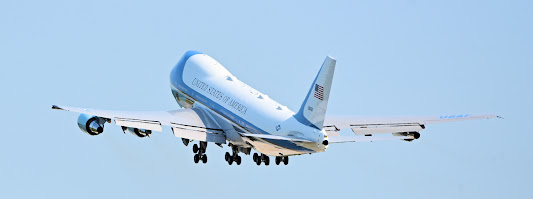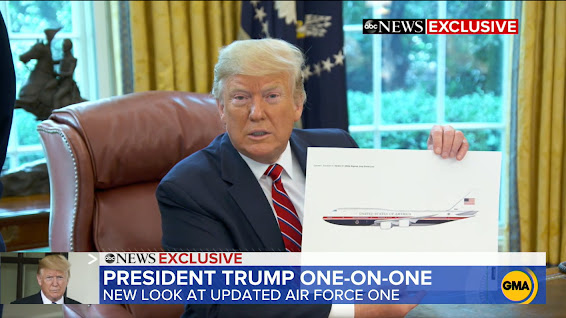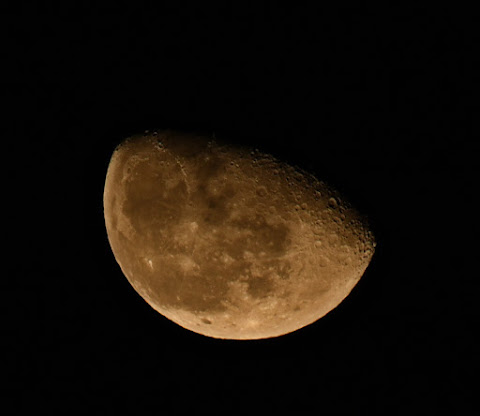Most people are aware that whatever United States Air Force plane is carrying the president immediately is designated “Air Force One.” But it’s safe to say the image that comes to mind when the vast majority of people hear that designation is the massive, four-engine Boeing VC-25A.
Based on the regal and legendary Boeing 747-200 passenger
airplane, the two VC-25A’s are fielded by the Presidential Airlift Group assigned
to the Air Mobility Command’s 89th Airlift Wing at Joint Base Andrews
in Maryland. First entering presidential service late in 1990, the VC-25As
conjure a majestic aerial presence whenever they take flight.
Last week, however, public attention turned to the future
and a next generation of presidential aircraft, the new Boeing VC-25B. Based on
the later generation 747s, and therefore larger than the VC-25As, the goal as
always is for the new aircraft to provide dependable transportation with
enhanced communications and security capabilities. As the USAF has noted in a
press release, “Modifications to the aircraft will include electrical power
upgrades, a mission communication system, a medical facility, an executive
interior, a self-defense system, and autonomous ground operations capabilities.”
While the enhanced functional features of the VC-25B were planned
all along, one aspect of these aircraft remained uncertain: their appearance.
In June 2019, then-President Donald Trump revealed his vision
for a complete re-vamping of the look of Air Force One, which had shared design
cues stretching back to the Kennedy era. The Trump design looked more like a
commercial aircraft, heavy on contrast. It called to mind the paint schemes of
Trump’s pre-presidential private jets, with a strident, blood-red stripe
extended nose-to-tail busily bordered above dark blue.
Trump found the new livery to be perfect; last week the Air
Force begged to differ. Pointing out that the issue of appearance did not
demand final specification until this later stage of the VC-25B program’s
development, the Air Force rationally pointed out an issue with the dark blue expanses
demanded by Trump. “A thermal study later concluded the dark blue in the design
would require additional Federal Aviation Administration qualification testing
for several commercial components due to the added heat in certain environments,”
noted a USAF press release issued on March 10. The bottom line is Trump’s
vision will remain unrealized.
The new final design elements – recently approved by President
Joe Biden - are far less weighty, sympathetically
continuing the current design theme with minor modifications. Overall, the
scheme is one that portrays the aircraft as part of the skies it travels
through via cloud-white and sunny-day-blue sections, accented with a single,
narrow gold center-line stripe.
But just don’t expect to see these new VC-25Bs in action any
time soon. Delivery dates for these two new presidential aircraft have slipped
from September 2026 and February 2027 to most likely some time in 2027 and
2028.








